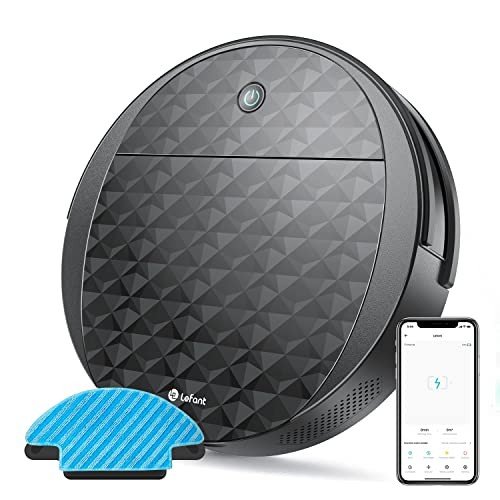The Rise of Autonomous Vacuums: Revolutionizing Home Cleaning
In the age of technology, family chores are ending up being progressively automated, and one of the most notable advancements in this world is the autonomous vacuum. robot vacuum UK are developed to minimize the drudgery of conventional vacuuming, making them popular amongst time-strapped homes. This post explores the development, performance, benefits, and constraints of autonomous vacuums, along with a contrast of some of the leading models on the marketplace today.
What is an Autonomous Vacuum?
An autonomous vacuum, also called a robotic vacuum cleaner, is a small, automated device that browses through your home to tidy floors without human intervention. Geared up with sensors, cameras, and advanced software application, these vacuums can discover challenges, prevent stairs, and optimize cleaning courses. They usually run from a rechargeable battery, going back to their charging stations when their power is low or when cleaning jobs are finished.
Secret Features of Autonomous Vacuums
Smart Navigation:
- Utilizes sensing units and algorithms to map the environment.
- Can browse complex layouts and avoid challenges.
Scheduling:
- Allows users to set cleaning times.
- Can operate when the home is empty, guaranteeing very little interruption.
Connection:
- Many models link to Wi-Fi, enabling app control and combination with smart home systems.
- Users can personalize settings, check cleaning status, and get alerts through mobile applications.
Suction Power:
- Varies between designs; some deal adjustable suction settings for various floor types.
- High-end designs include powerful suction efficient in getting pet hair and deep dirt.
Floor Type Adaptability:
- Capable of cleaning carpets, wood, tiles, and more.
- Specific models specialize in tailored cleaning for several surface areas.
The Advantages of Using Autonomous Vacuums
1. Time-Saving
One of the most significant advantages of autonomous vacuums is the quantity of time they save. Rather than investing hours pressing a conventional vacuum, house owners can set robotic vacuums to tidy while they are taken part in other activities.
2. Constant Cleaning Schedule
With the ability to schedule cleansings, these vacuums guarantee that areas are frequently cleaned up, leading to a cleaner home in general. Routine cleaning helps maintain indoor air quality, especially for families with allergic reactions or asthma.
3. Smart Home Integration
Lots of autonomous vacuums can be incorporated with clever home systems for seamless operation. Homeowners can manage their vacuums by means of voice commands through devices like Amazon Alexa or Google Assistant, enhancing user convenience.
4. Compact Design
The slim profile of these devices permits them to clean under furnishings, such as couches and beds, where traditional vacuums often can not reach.
5. Pet-Friendly
For family pet owners, autonomous vacuums can be a game-changer, as they are typically equipped with specialized features for picking up animal hair and dander, contributing to a cleaner home environment.
Limitations of Autonomous Vacuums
In spite of their lots of advantages, autonomous vacuums also have limitations:
1. Restricted Deep Cleaning
While these vacuums efficiently keep cleanliness, they might not change the efficiency of a deep tidy supplied by conventional vacuums, particularly for greatly stained areas.
2. Capacity Constraints
Most autonomous vacuums included small dust bins that need to be cleared regularly, specifically in bigger homes or homes with family pets. This can be an inconvenience for some users.
3. Navigation Challenges
Although navigation innovation is continually improving, some models may deal with particular layouts, particularly intricate spaces with many barriers or really small rooms.
4. Cost Point
While costs have ended up being more accessible, high-end designs can still be quite pricey, positioning a barrier for some customers.
Comparison of Top Autonomous Vacuum Models
| Model | Smart Features | Battery Life | Suction Strength | Cost Range |
|---|---|---|---|---|
| iRobot Roomba 980 | App Control, Voice Assistant | 120 minutes | 1700 Pa | ₤ 700 - ₤ 900 |
| Roborock S6 MaxV | Advanced Mapping, Connectable | 180 minutes | 2500 Pa | ₤ 600 - ₤ 800 |
| Ecovacs Deebot Ozmo | Mopping, Smart Home | 110 minutes | 1500 Pa | ₤ 450 - ₤ 700 |
| Neato Botvac D7 | Laser Navigation, Custom Zones | 120 minutes | 2000 Pa | ₤ 800 - ₤ 900 |
| Shark IQ Robot | Self-Emptying Base, Smart Map | 90 minutes | 1500 Pa | ₤ 400 - ₤ 600 |
Notable Takeaways
- Smart Features: Consumers need to prioritize designs using robust clever functions for convenience and efficiency.
- Battery Life: A longer battery life is useful for larger living areas.
- Suction Strength: Depending on home requirements, varying suction power can substantially impact cleaning performance.
FAQs about Autonomous Vacuums
Q1: How do I keep my autonomous vacuum?
A: Regular upkeep consists of cleaning the brushes, clearing the dustbin, and looking for blockages. Additionally, keeping the sensing units clean will assist keep navigation precision.
Q2: Can robotic vacuums tidy carpets and carpets?
A: Yes, numerous robotic vacuums are created to efficiently tidy both hard surfaces and carpets. However, suction power might vary based on the model.
Q3: Do robotic vacuums require Wi-Fi?
A: While numerous autonomous vacuums take advantage of Wi-Fi connectivity for app control and updates, some designs can operate independently without a wireless connection.
Q4: How frequently should I run my robotic vacuum?
A: It depends upon your living situation, but running it numerous times a week is often suggested, especially for homes with animals.
In conclusion, autonomous vacuums represent a substantial improvement in home cleaning technology, promising benefit and effectiveness. While robot vacuum cleaner mop might not entirely change traditional vacuum, they are certainly useful in preserving a tidy living environment. As technology continues to progress, the future of home cleaning looks appealing, and these devices are at the leading edge of the revolution.

